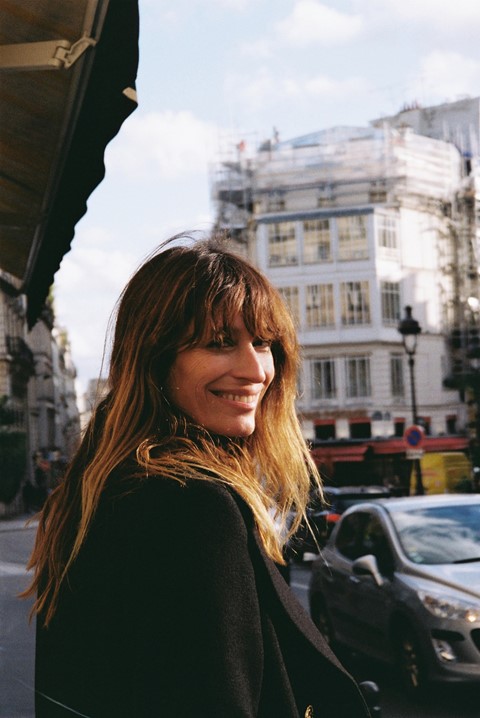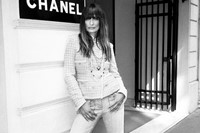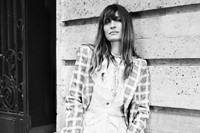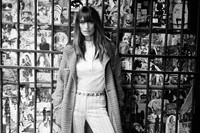The Chanel ambassador’s new book, Older But Better, But Older – co-authored by Sophie Mas – is a rich compendium of thoughts and advice on growing older like a French woman
For decades, the particular allure of the French woman – chic, insouciant, astute, with that innate balance of restraint and joie de vivre – has provided a literary genre all of its own. You can buy books which tell you to how think like a French woman, eat like one, dress like one – even bring up your children like one. But it was How to Be Parisian, Wherever You Are – a witty compendium on the “love, style and bad habits” of les Parisiennes by Caroline de Maigret, alongside a number of friends – which proved something of the apex of the genre, playfully batting off clichés while demonstrating that Parisian women had it all (or at least mostly) figured out.
Now, De Maigret, who rose to fame as a model and now also counts author, activist, music producer and ambassador for the French house of Chanel as some of her many pursuits, returns with a new volume, Older But Better, But Older, co-authored by Sophie Mas. A sort-of sequel to How to Be Parisian (Mas was a co-author for that too), the 260-odd page volume – across essays, aphorisms, poems, lists and glossy photographs of the pair – now addresses the inevitable process of ageing and all that comes with it, from family and work to sex and beauty, all from, as the blurb attests, “a French woman’s mindset”. De Maigret says she began writing it after what she calls a “midlife crisis, quite a violent one”. “I started going out every night, thinking for a few months that it was the last time for things. It was very intense for my boyfriend,” she says. Then a smile: “But he’s been very good and patient.”
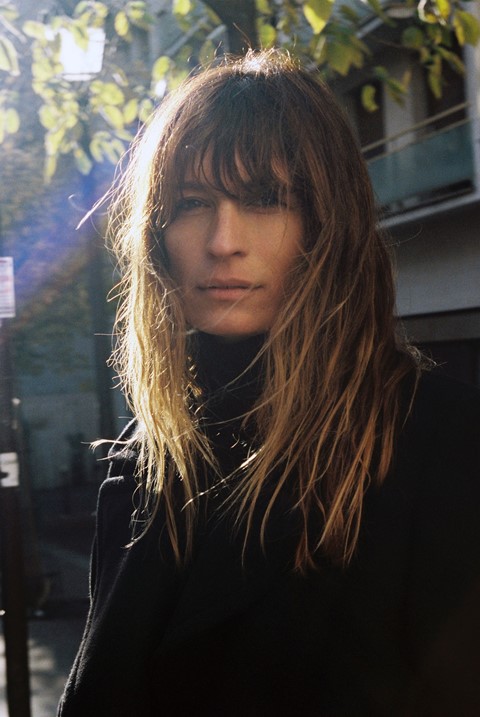
She’s far from this when I meet her on a drizzly morning at London’s Browns Hotel, where she cheerfully reclines on the sofa, surrounded by copies of the new book. Far from crisis, she is a vision of gallic composure: slim black trousers and a polo-neck jumper, hair gently ruffled as in her signature style. I ask her why she thinks people remain so fascinated by the mystique of the French woman. “I think there are some countries where people have a tendency to put big pressure on themselves to be perfect,” she says. “For some reason, [in France] we’ve lost, or we don’t have, that same quest for being perfect; it’s not an achievement. You’re not always chasing utopia.” As for ageing: “It’s not that we’re completely fine about it, it’s just the pressure is less.” Take, for example, cosmetic surgery – as she quips in the book, “in France, if you can tell someone’s had a face lift, it’s considered a botch job”.
In fact, Older But Better, But Older began with her own potential brush with cosmetic intervention. “I think I started thinking about age when I went to the dermatologist, to check on my beauty spots,” De Maigret says. “She checked them fast, and then was like: ‘OK, so what do we do with your face?’ I was like...” De Maigret pulls a face of mock alarm, before bursting into laughter. “I was a bit shocked, and upset for other women – it was odd because I was just going for medical reasons. Then, I was at this dinner party and a girl came up to me, she was in her early thirties, and she came up to me and said: ‘oh you know I love you very much, I like what you do and you’re a great source of inspiration, I want to be like you when I am old,’” she pauses. “To me, we were the same age, then I realised it is a strange thing that you’re not prepared for, to suddenly being put into another category and that society – and your face – kicks you out of the youth club.”
So she began working with Mas (“we’re very different; it was important to have another angle, she can dig deeper and understand why I feel a certain way”) collating and writing about various experiences one faces on the inevitable road to old age, from no longer being the ‘mysterious girl’ at a party (“today, they call me ‘Madam’ and usually when they need something... ‘Madam can I bum a cigarette?’”) to deciding whether to have more children (“do I even have it in me to love another one?”). At turns amusing and poignant, the various essays are peppered with singular quotes and observations – on one page might be Simone de Beauvoir’s assertion that “one is not born, but rather becomes, a woman”, on another, “You know things aren’t how they used to be when the president of France is younger that you”.
“I think it helps in life when you share things,” De Maigret says. “I wrote the book because it’s always nice to read things that happen to you and you’re not sure if other people feel like that and then you read it and you’re like: ‘oh, so I am OK, I’ll be OK’.” It was important for the book to feel unvarnished: “Magazines tend to say how amazing it is getting old, but there is some annoying stuff too... that’s why the ‘but older’ was important to add. You have to be honest.”
Of the women she admires, she cites the late filmmaker Agnès Varda, who was a personal friend. “She never stopped anything in her career because of her age,” De Maigret says. “It was never an excuse not to do something: she would be like ‘oh, I’m thirsty’ and I would stand up to grab her a glass of water and she would stop me and say ‘if you stand up what I have left to do?’ She was 90.” For clothing, it is naturally Chanel – a longtime ambassador of the house, she now is the face of its Spring/Summer 2020 pre-collection. “To have one piece that is actually going to last forever, that you can you can give to your children, that embodies the woman you are, and is not from a ‘season’ – that is what Chanel is, and the style I want to have.”
I ask her if there was one piece of advice she could impart, learnt while putting together Older But Better, But Older. She smiles: “I don’t think you are ever ready to hear advice, in a way I think it’s easier while you’re living it.” But she relents: “OK, maybe this works: stop projecting yourself in the future... It’s important to fix your past, for it not to become your future. I don’t regret anything from the past,” she concludes. “Because it wasn’t the time for me to be the person I wish I could have been.”
Older But Better, But Older is published by Ebury Press, and is out now.
